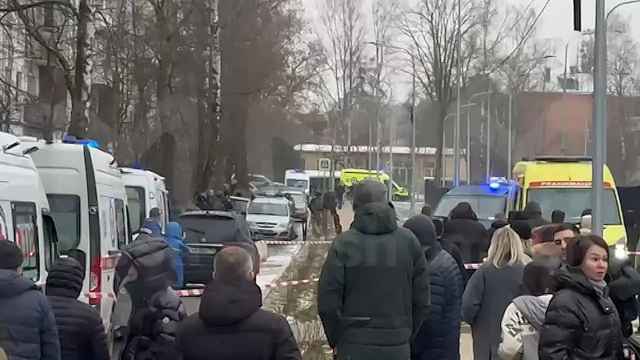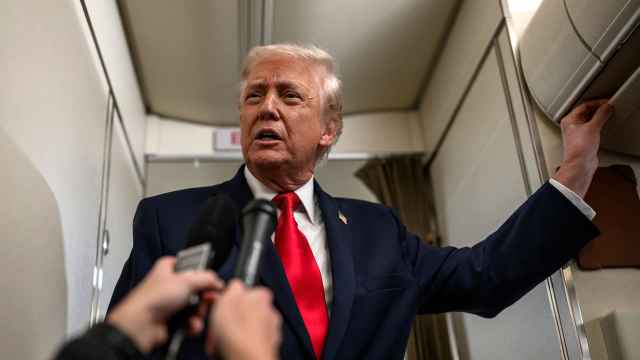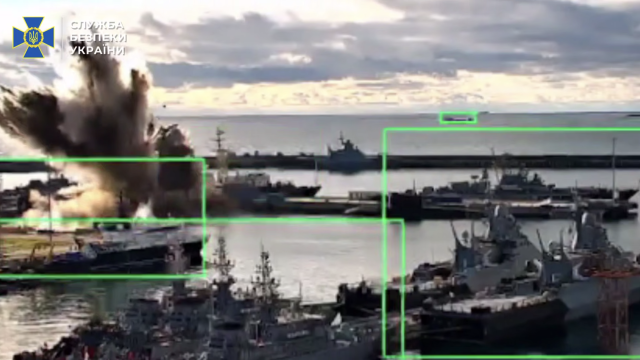BONN, Germany — It was a historic moment in UN climate talks: With most countries in favor and only a group of OPEC members objecting, the German environment minister chairing the conference banged down her gavel to launch negotiations on a treaty to fight global warming.
The year was 1995, the minister was Angela Merkel, now chancellor, and the outcome after two years of talks was the Kyoto Protocol, a plan for cutting greenhouse gas emissions by developed nations. Merkel was exploiting United Nations rules for breaking negotiating deadlock by making decisions by consensus where the conference chair decides there is overwhelming support among the nearly 200 nations represented.
Eighteen years on, the consensus system has run up against a powerful opponent: Russia, with two of its ex-Soviet neighbors, is denouncing it as too vague, and their opposition could thwart progress toward the next deal to fight climate change, due to be agreed in 2015.
Seething after they were overruled in a consensus decision at UN talks in Qatar last year, Russia, Belarus and Ukraine blocked one strand of two-week climate talks in Bonn ending on Friday, by insisting on clearer rules for decision-making.
“Our process is very sick,” Russian delegate Oleg Shamanov said.
Most nations reluctantly accept the ambiguous idea of consensus as less unwieldy than the alternatives of unanimity — meaning a veto for every nation — or majority voting, which could also see countries overruled more frequently.
“We have to sort this out as soon as possible and certainly before 2015. If we don’t find a solution, the consequences could be catastrophic for many of the most vulnerable,” said Ronny Jumeau of Seychelles, a spokesman for AOSIS, the alliance of about 40 small island states — among them Tuvalu and Grenada — that are vulnerable to rising sea levels caused by global warming.
The two-week delay in Bonn has led to calls for environment ministers and leaders to help stop the process from unravelling. The next chance to solve the dispute will be at end-of-year UN talks in Warsaw.
Tomasz Chruszczow, the Polish chair of the talks, urged “discussions at the highest political level on how to resolve the issue” before then. But Alden Meyer, of the Union of Concerned Scientists, said Russia’s objections could overshadow the talks right until a planned summit in Paris in 2015.
The new pact is meant to apply to all nations and succeed Kyoto, which was limited in its effectiveness by the fact that it excluded developing nations like China, now the biggest emitter of greenhouse gases, and was never ratified by the United States.
Despite Kyoto, atmospheric levels of heat-trapping gases continue to rise, triggering warnings that the world will suffer more floods, drought and famine if emissions are left unchecked. Past decisions under the consensus system have ignored OPEC or Bolivia, but never a nation as powerful as Russia. Decisions in Qatar undermined its hopes and those of Belarus and Ukraine that their cuts in greenhouse gas emissions since the collapse of the Soviet Union would yield billions in carbon credits.
“Consensus is a situation that the chairman has to feel in his guts. It’s not unanimity, which means someone has a veto, which is what Russia is now doing — they are used to that in the [UN] Security Council,” said Raul Estrada, a former diplomat from Argentina who led 1997 talks in Kyoto. Russia is one of five permanent members with the power to block agreements on the Security Council.
Even if no change to the process is made, delegates say the spat means future chairs will be less hasty in reaching for their hammer to force through measures while objections remain that could lead to more complex talks.
“I presume that future … presidents will be much more careful before just trying to gavel things through. Maybe they will give [it] another few hours to try to come to consensus,” said Artur Runge-Metzger, a senior negotiator with the European Commission.
Others said it could lead to a less ambitious deal.
“It will certainly make the negotiations even tougher than they already are and strengthen the hand of those who want to water down the ambition or have as weak an agreement as possible, or even no agreement at all, in 2015,” AOSIS’s Jumeau said.
A Message from The Moscow Times:
Dear readers,
We are facing unprecedented challenges. Russia's Prosecutor General's Office has designated The Moscow Times as an "undesirable" organization, criminalizing our work and putting our staff at risk of prosecution. This follows our earlier unjust labeling as a "foreign agent."
These actions are direct attempts to silence independent journalism in Russia. The authorities claim our work "discredits the decisions of the Russian leadership." We see things differently: we strive to provide accurate, unbiased reporting on Russia.
We, the journalists of The Moscow Times, refuse to be silenced. But to continue our work, we need your help.
Your support, no matter how small, makes a world of difference. If you can, please support us monthly starting from just $2. It's quick to set up, and every contribution makes a significant impact.
By supporting The Moscow Times, you're defending open, independent journalism in the face of repression. Thank you for standing with us.
Remind me later.





